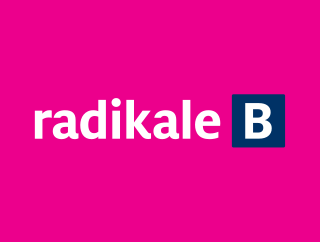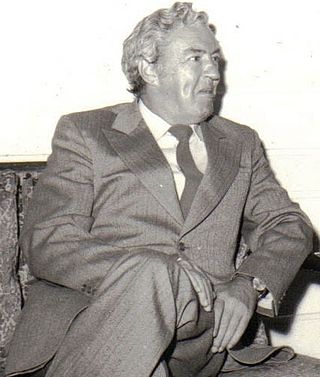Related Research Articles

Upernavik is a small town in the Avannaata municipality in northwestern Greenland, located on a small island of the same name. With 1,064 inhabitants as of 2024,it is the twelfth-largest town in Greenland. It contains the Upernavik Museum.
Information, full name: Dagbladet Information, is a Danish newspaper published Monday through Saturday.

The Green Left is a democratic socialist political party in Denmark.

The Danish Social Liberal Party is a social-liberal political party in Denmark. The party was founded as a split from the Venstre Reform Party in 1905.

Brøndbyernes Idrætsforening (Danish pronunciation:[ˈpʁɶnˌpyˀɐnəsˈitʁætsfɒˌe̝ˀne̝ŋ], usually abbreviated to Brøndby IF, is a Danish football club based in the Copenhagen suburb of Brøndbyvester. Brøndby IF denotes the professional football section of Brøndbyernes Idrætsforening, which was founded on 3 December 1964 by a merger of the football clubs Brøndbyøster Idrætsforening and Brøndbyvester Idrætsforening. The club's first team, which plays in the Danish Superliga, plays its home games at Brøndby Stadium, where its team plays in blue pants and socks and yellow shirts.

Assistens Cemetery in Copenhagen, Denmark, is the burial site of many Danish notables as well as an important greenspace in the Nørrebro district. Inaugurated in 1760, it was originally a burial site for the poor laid out to relieve the crowded graveyards inside the walled city, but during the Golden Age in the first half of the 19th century it became fashionable and many leading figures of the epoch, such as Hans Christian Andersen, Søren Kierkegaard, Christoffer Wilhelm Eckersberg, and Christen Købke are all buried here.
Karen Moustgaard Jespersen is a Danish journalist and former politician representing the party Venstre.
Folket i Bild/Kulturfront is a Swedish magazine for reports, art, literature, debate and culture. It is published by the organization of the same name. The magazine is based in Stockholm.
Ny Dag was a Swedish communist newspaper and the main publication of the Communist Party of Sweden from 2 January 1930 to 5 August 1990, when publication stopped.

Bo Lidegaard is a Danish historian, public intellectual, and former responsible editor-in-chief for Politiken. Bo Lidegaard worked in the Ministry of Foreign Affairs (1984-2005), was Ministerial Counselor and Ambassador in the Prime Minister's Office (2005-2011), and on 26 April 2011 was appointed editor-in-chief of Politiken, succeeding Tøger Seidenfaden. He is currently co-founder and Partner at Kaya Advisory, an advisory firm specialising in navigating climate and green transition policies and politics.

Knud Jespersen was a Danish politician. Jespersen served as chairman of the Communist Party of Denmark between 1958 and 1977 and was a member of parliament between 1973 and 1977.

De Gyldne Laurbær is a Danish literature award, which was established in 1949. The award is handed by The Committee De Gyldne Laurbær, formerly Boghandlerklubben. The prize is given annually in February or March. Originally the award was a laurel wreath, a golden pin with an inscription, some money and a book gift worth 2500 DKK. Today the award is a laurel wreathe, a diploma and a book gift worth 2500 DKK. The award is handed at a ceremony arranged by the publishing house which has published the winning book and by the Committee De Gyldne Laurbær. Early in January every year the committee sends out ballot to all the Danish bookshops, which then give their vote for a Danish book which was published the year before. An author can only win The Golden Laurel once-in-a-lifetime, so the bookshops can not vote for an author who has already won the prize once before. The winner is usually one of the bestsellers among the Danish books. On the day when it is decided who wins the Golden Laurel, the president of the Committee of The Golden Laurel informs the winner about the award, while journalists follow the event.
Stop Wasting Food is a Danish consumer organization that works for the reduction of food waste in society. It was established in 2008 by Selina Juul, who acts as the movement's day-to-day leader and spokesperson. The organization is run by volunteers and does not count on a permanent membership.
Bente Hansen was a Danish writer, editor and women's rights activist who was a prominent supporter of the Danish Red Stocking Movement from 1970. She published a number of books on socialism and the role of women and was coordinating editor of the daily newspaper Information in the mid-1970s, giving special attention to social movements.
Belinda Joy Davis is an American historian of modern Germany and Europe at Rutgers University.

Inge Biehl Henningsen is a Danish statistician, academic and writer. A former researcher and lecturer at the universities of Copenhagen and Aarhus, she has also been active in politics and women's rights, most recently in connection with the PISA approach to student assessment. As editor of the socialist journal Naturkampen in the 1980s, she covered subjects as varied as the management of cancer research and the European Union's approach to agriculture in the third world.
References
- ↑ Karen S. Bjerregaard (2009). "The Meaning of Armed Struggle. Solidarity with the Third World in Denmark in the 1960s and 1970s" (PDF). In Henrik Jensen (ed.). Rebellion and resistance. Pisa: Plus-Pisa university press. Archived from the original (PDF) on 15 February 2017.
- ↑ Marianne Ping Huang. "Cultural Journals and Cultural Debate: Focusing Cultural Diffusion" (Conference paper). Aarhus Universitet. Retrieved 25 June 2016.
- 1 2 3 4 5 6 "Politisk Revy". Leksikon (in Danish). Retrieved 1 October 2013.
- ↑ Andreas Jorgensen (February 1997). "Efficiency and Welfare under Capitalism: Denmark vs. the United States; a Short Comparison". Monthly Review. 48 (9): 34. doi:10.14452/MR-048-09-1997-02_3.
- 1 2 3 4 Sune Haugbolle; Pelle Valentin Olsen (2023). "Emergence of Palestine as a Global Cause". Middle East Critique . 32 (1): 139, 147. doi: 10.1080/19436149.2023.2168379 . hdl: 10852/109792 .
- ↑ "Politisk revy". WorldCat. OCLC 465836373.
- 1 2 3 4 Anna Stadager (2009). "The Spiritual '1968'" (PDF). In Henrik Jensen (ed.). Rebellion and resistance. Pisa: Plus-Pisa University Press. Archived from the original (PDF) on 3 March 2016.
- ↑ "Participants". Minority Report. Retrieved 1 October 2013.
- ↑ "Governments - Denmark". VIPS. Retrieved 1 October 2013.
- ↑ "Four People". The Danish Council of Ethics. 1997. Retrieved 16 December 2014.
- ↑ Andrew Jamison (June 2004). "Learning from Lomborgor: or where do anti‐environmentalists come from?". Science as Culture. 13 (2): 173–195. doi:10.1080/0950543042000226602. S2CID 143830761.
- ↑ Christopher Munthe Morgenstierne (2003). Denmark and National Liberation in Southern Africa: A Flexible Response (PDF). Uppsala: Nordic African Institute. p. 56. ISBN 91-7106-517-2.
- ↑ Thomas Ekman Jørgensen (2008). "Scandinavia". In Martin Klimke; Joachim Scharloth (eds.). 1968 in Europe. A History of Protest and Activism, 1956–1977. New York: Palgrave Macmillan. p. 241. doi:10.1057/9780230611900_21. ISBN 978-0-230-60620-3.
- ↑ Thomas Ekman Jorgensen (2008). Transformations and Crises: The Left and the Nation in Denmark and Sweden, 1956-1980. New York: Berghahn Books. p. 130. ISBN 978-1-84545-861-4.
- ↑ Karen Steller Bjerregaard (2011). "Guerrillas and Grassroots: Danish Solidarity with the Third World in the 1960s and 1970s" (PDF). In Martin Klimke; et al. (eds.). Between Prague Spring and French May. New York; Oxford: Berghahn Books. ISBN 978-0-85745-106-4. Archived from the original (PDF) on 16 December 2014.
- ↑ Robert Collison (July 1970). "Trends abroad: Western Europe" (PDF). Library Trends . hdl:2142/6538.
- ↑ Axel Kjær Sørensen (2009). Denmark-Greenland in the Twentieth Century. Copenhagen: Museum Tusculanum Press. p. 135. ISBN 978-87-635-1276-3.